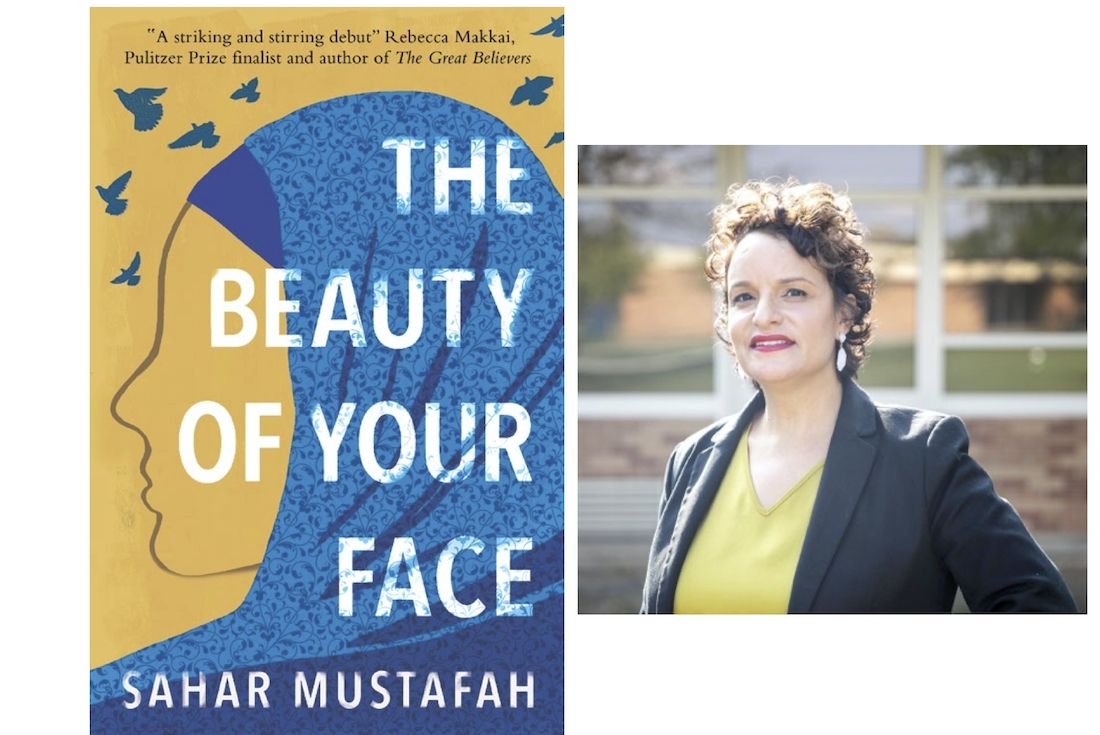

THE WRITER
'I was born to Palestinian immigrants in Chicago, Illinois, the second daughter of six children. At the age of ten in 1983, my parents uprooted my siblings and me to Palestine where they’d spent their life savings on a small villa. Their plan all along had been to raise us in their homeland while my father, like many first-generation fathers, continued to work in the States to financially support us,' says Sahar Mustafah, who explores this richly complex inheritance in her fiction. This period was the most formative for her as she found a sense of community and kinship that had evaded her for the first half of her childhood, since she was the only student of colour in a Catholic private school. The Israeli Occupation was a rattling, strange experience but in spite of it, she thrived at an all-girls school in Ramallah. It was then quite difficult for her to return to the States after the first Intifada in 1988 and assimilate back into American culture.
Sahar had already begun writing at the age of ten, before she had moved to Palestine. Yet, 'I hadn’t envisioned a career in writing—it wasn’t a practical possibility in my mind,' she tells me. Hence, she turned to teaching where she could share her love of literature and composition with young people. Nevertheless she was pulled to create a space for herself to compose fiction. Her stories filled a personal narrative void: she was essentially constructing a world of compelling lives for which the White book industry hadn’t made much space. For some years, she couldn’t identify a single Arab American writer until she discovered Naomi Shihab Nye. 'My writing has since evolved into this incredible, second life,' says Sahar.
THE BOOK
The Beauty of Your Face tells the story of Afaf Rahman, the principal at the Nurrideen Islamic School for girls in Chicago. When a gunman brutally attacks the school, the reader is swept back in time, alternating between the lives of Afaf and the gunman. Afaf is the daughter of a Palestinian American family, whose lives were forever changed by the disappearance of her older sister. Navigating through a country where White Americans are quick to judge and quick to hate, the novel explores Afaf’s journey to find love and acceptance in her country, her family, and ultimately within her own heart.
THE INSPIRATION
'My novel is inspired by the real-life murders of Yusor Mohammad Abu-Salha, her husband Deah Shady Barakat and her sister Razan Mohammad Abu-Salha, three young Muslim Americans, shot to death by a White neighbour in Chapel Hill, North Carolina in 2015,' says Sahar. For her, fiction is a space to explore the tragic and challenging moments in our world, to not readily offer answers as much as raise questions regarding our humanity: how does it feel to not belong to any place? What do loss and grief look like? What happens when our fears and hatred go unchecked? 'I’m interested in what my readers end up discovering about themselves and their current ideas about the world: what new questions have arisen for them once they close the novel? How has this book changed them as human beings in a chaotic universe? And if those questions happen to lead them to make different choices—to join the anti-gun lobby, to become allies for Muslim Americans, to vote a certain way—then my book has done something quite extraordinary off its pages,' she offers.
THE PROCESS
'My first draft failed miserably. That was the result of not looking backwards in my characters’ lives,' says Sahar as it became apparent to her that if she didn’t track the original course of her characters’ identities—their beginnings—she wouldn’t unearth valuable, vital stories that intersect and shape the time frame of the shooting. So she started over and in a new draft, she focused on two major characters—Afaf Rahman and the White shooter—and explored what had brought them to this critical point in time. What forces had carried them along? What choices had they made? Once she narrowed the focus and changed the direction of the novel, the writing faired quickly which typically happens for her when she is on the right path with any piece of writing.
She says that her greatest challenge 'was presenting the shooter in a truthful, three-dimensional way that did not diminish his monstrous actions, but allowed the reader to see him as complex and unyielding—in other words, a human being.' Her research, which centred on hate crime perpetrators, was difficult at times as she was confronted by insidious and detestable individuals and organisations. 'I had to brace myself for the challenge and capacity to cull any sense of humanity from the depths of such toxic and lethal ideologies, without justifying them,' she ruminates.
THE FUTURE
She is currently working on a multi-generational novel set in Palestine that follows three characters whose lives intersect in inevitable, tragic ways.
To grab a copy of the all new Platform bookazine download our app.
Text Nidhi Verma